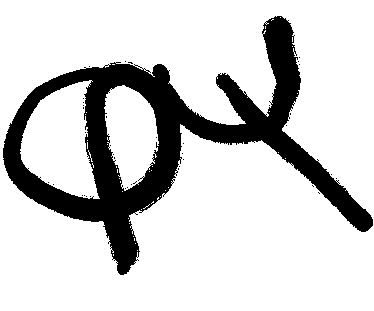Psychotherapy's Roots in Philosophy
Published on 12.11.23 at garyborjesson.substack.com
We are inquiring not in order to know what virtue is, but in order to become good, since otherwise our inquiry would be of no use. - Aristotle
Years ago now, a colleague replied to an email with the suggestion that I might not want to include my PhD in the signature line of my professional emails; it might mislead people into thinking I had a PhD in “something relevant” to being a therapist. After containing my irritation at his confident, condescending tone, I replied, telling him I was open about my PhD being in philosophy, and that in any case philosophy is relevant to being a therapist. After all, I said, psychotherapy and psychology in general are rooted in philosophy. This was news to him. But it would not have been news to Freud or Jung that their work leaned heavily on philosophy. Nor would it be news to the American Philosophical Practitioners Association, which aims to bring philosophical methods and insights to clinical work in order to better address human problems.
I was reminded of this exchange as I began this note. I had intended to share some intrusive Hegelian thoughts I’ve been having while working on the last few notes about what Winnicott means by good enough and not good enough caregivers. Next week I will offer some comparisons of Winnicott and Hegel’s thought. But in this note I want to prepare the way fur all such future intrusions of philosophy by saying a little about why thoughtful practitioners should care about philosophy, even when our aim is the practical one of being helpful. (This was the unconscious question lurking behind my colleague’s concern about philosophy’s relevance.)
I hope you agree with Socrates that an examining life is a better life—for us, and for those we help. Otherwise, why read these notes when you could be using your screen time to red the news or scroll Instagram or watch Netflix. Thinkers such as Socrates, Plato, Aristotle, Hegel, and Nietzsche (to name a few of my philosophical heroes) can help deepen that examination. In addition to learning about their ideas, philosophers offer a view to how they’re thinking, and why. In this way, studying them can help us learn how to think. When I taught philosophy, I focused as much on helping students develop a framework for thinking about things as I did on any particular content. What are the big human questions? How have humans framed them, related them, and thought about them? On what matters do people agree, mostly? On what is there disagreement?
Regarding the big human questions and how they intrude on therapy, I’m reminded of a bright, sensitive young man who was struggling with depression and addiction. One day in session he charmed me by channeling his inner Aristotle. He said, “You know, I don’t think I’m gonna solve my problems until I figure out what I’m doing on this planet. And I don’t think I’m gonna figure that out without learning what would actually make me happy.” He added, wryly, “Right now taking LSD a few times a week is as far as I’ve gotten.” This is a perfect example of how philosophical inquiry naturally emerges in therapeutic work. After all, what is human flourishing? And what might we learn from that grand question about what would “actually” make us happy?
Practitioners with good ears will hear the perennial philosophical questions resonating in their work: What is health? How do we promote flourishing and reduce suffering? What does it mean to live a good and happy life? What is most worth living for? Where do others fit in? What sorts of relationships do we want to cultivate, with whom, and how? What is a good-enough way to raise our children? Where do self-examination and education fit in all this?
How we work with people reveals a lot about our answers to these questions, even if we are unaware we’ve answered them. If someone protests that they’re neutral or unresolved on such questions, and that in any case they would never impose their views on others, a little more self-examination is in order. For our speech and behavior towards others inevitably implies a point of view. So we might as well get to know what it is. Self-awareness is a virtue of therapists as well as philosophers.
Ultimately the practice of helping others means acting as if we have views on philosophical matters. Thus it’s no surprise that the work and literature of psychotherapy have philosophical roots. Nor is it a surprise that these roots get lost from view in our pressing practical concern to alleviate suffering. Still, now and then the bigger questions intrude. Like the young man wondering what would make him happy, many of us can’t address the roots of our suffering without asking a preeminently philosophical question: What makes for a good, meaningful human life?
